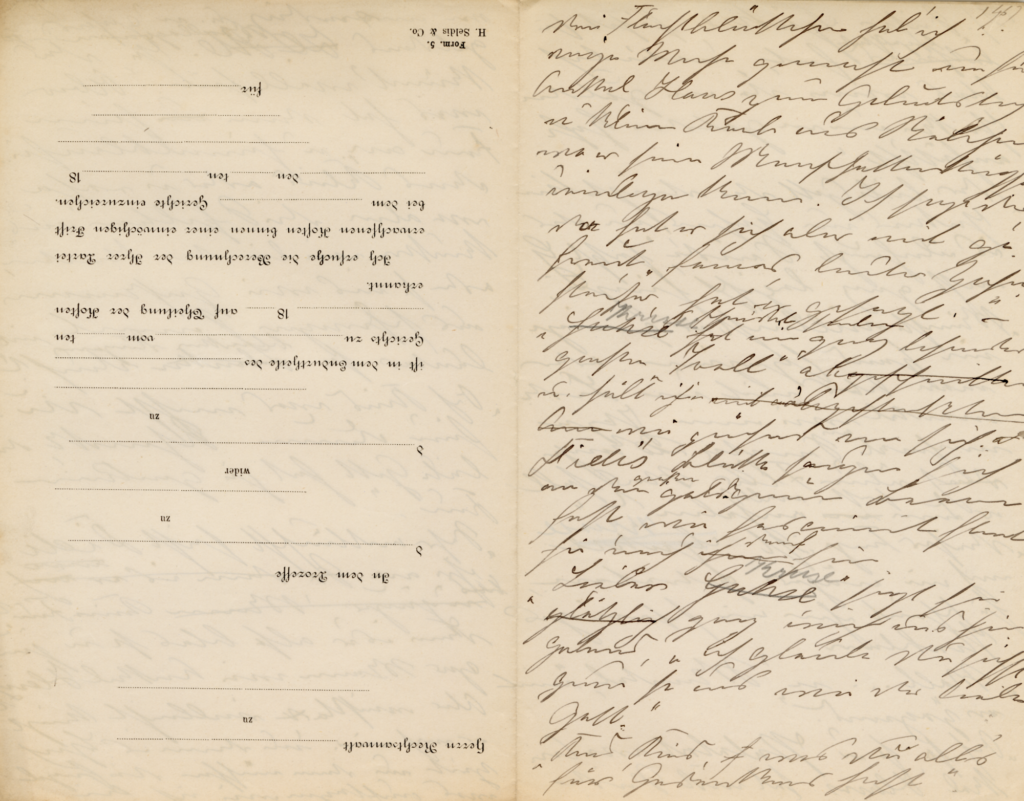19 X 1871, Minden (Germany) – 13 II 1943, Terezin Ghetto
Biography
Called “the poetess of the child’s soul”, Josefa Metz wrote children’s books, essays and plays performed on the radio and in theatres. She had strong ties to Bielefeld, Germany, to which she returned regularly throughout her life.
Born in 1871 in Minden, Germany, Josefa was the youngest of seven children born to Elvira and judge Philipp Metz. In 1879, the family moved to a house in Bielefeld. In 1887, Philipp Metz died of heart failure, ending Josefa attendance at her private girls’ school. One of her brothers, Joseph, died before she was born, two other, Ernst Elias and Hans Armin, went on to study law, while yet another brother, Berthold, emigrated to the USA. Little is known about the lives of her sisters, Recha and Paula.er, Berthold, emigrated to the USA. Little is known about the lives of her sisters, Recha and Paula.
Josefa moved to Berlin on 4 May 1894. It is also known that she lived in Munich in 1909. She changed residences frequently prior to 1918, but most importantly, she returned to the house in Bielefeld and to the attic where she preferred to write. In 1903, her first children’s book Didi und Konsorten (‘Didi and Company’) was published in Berlin. Subsequently, readings of the book, e.g., at the Beethoven Hall, were organised to raise funds for mentally handicapped children. In 1908, her play Den König drückt der Schuh (‘The Shoe that Pinches the King’) premièred in Vienna, staged in Bielefeld the same year and later in Karlsruhe (1913).
In 1916, she met Arthur Schnitzler, one of the most important representatives of Viennese Modernism. In the same year, she published the novella, Wehrlose (‘
In February 1935, as a Jewish writer, she was denied membership in all of the Reich’s writers’ associations, effectively barring her from publication. Her last published work, Eva. Aus einer glücklichen Kindheit (‘Eva: From a Happy Childhood’), was released in a small edition by a Jewish publisher in 1937 in Berlin. The book contains clear autobiographical references. In 1938, Josefa spent a few months in Bielefeld with her sister Paula before moving to Berlin. There is no information on her life in post-1938 Berlin. She was deported from the city to the ghetto in Terezin/Theresienstadt where she died on 13 February 1943. Her death certificate cites pneumonia as the cause of death.
Sources:
Below, Irene, Josefa Metz im Kontext ihrer Zeit (Vortrag von 2019).
Josefa Metz, Archives in North Rhine Westphalia, https://www.archive.nrw.de/archivsuche?link=FINDBUCH-A91x55338519811630220180912134106912 (7.02.2023).
Metz Josefa: Death certificate, Ghetto Terezín, https://www.holocaust.cz/en/database-of-digitised-documents/document/94683-metz-josefa-death-certificate-ghetto-terezin/ (7.02.2023).
Rath, Jochen, 19. Oktober 1871: Geburt der Schriftstellerin Josefa Metz in Minden, https://historischer-rueckklick-bielefeld.com/2021/10/01/01102021/ (7.02.2023).
Called “the poetess of the child’s soul”, Josefa Metz wrote children’s books, essays and plays performed on the radio and in theatres. She had strong ties to Bielefeld, Germany, to which she returned regularly throughout her life.
Born in 1871 in Minden, Germany, Josefa was the youngest of seven children born to Elvira and judge Philipp Metz. In 1879, the family moved to a house in Bielefeld. In 1887, Philipp Metz died of heart failure, ending Josefa attendance at her private girls’ school. One of her brothers, Joseph, died before she was born, two other, Ernst Elias and Hans Armin, went on to study law, while yet another brother, Berthold, emigrated to the USA. Little is known about the lives of her sisters, Recha and Paula.er, Berthold, emigrated to the USA. Little is known about the lives of her sisters, Recha and Paula.
Josefa moved to Berlin on 4 May 1894. It is also known that she lived in Munich in 1909. She changed residences frequently prior to 1918, but most importantly, she returned to the house in Bielefeld and to the attic where she preferred to write. In 1903, her first children’s book Didi und Konsorten (‘Didi and Company’) was published in Berlin. Subsequently, readings of the book, e.g., at the Beethoven Hall, were organised to raise funds for mentally handicapped children. In 1908, her play Den König drückt der Schuh (‘The Shoe that Pinches the King’) premièred in Vienna, staged in Bielefeld the same year and later in Karlsruhe (1913).
In 1916, she met Arthur Schnitzler, one of the most important representatives of Viennese Modernism. In the same year, she published the novella, Wehrlose (‘
In February 1935, as a Jewish writer, she was denied membership in all of the Reich’s writers’ associations, effectively barring her from publication. Her last published work, Eva. Aus einer glücklichen Kindheit (‘Eva: From a Happy Childhood’), was released in a small edition by a Jewish publisher in 1937 in Berlin. The book contains clear autobiographical references. In 1938, Josefa spent a few months in Bielefeld with her sister Paula before moving to Berlin. There is no information on her life in post-1938 Berlin. She was deported from the city to the ghetto in Terezin/Theresienstadt where she died on 13 February 1943. Her death certificate cites pneumonia as the cause of death.
Sources:
Below, Irene, Josefa Metz im Kontext ihrer Zeit (Vortrag von 2019).
Josefa Metz, Archives in North Rhine Westphalia, https://www.archive.nrw.de/archivsuche?link=FINDBUCH-A91x55338519811630220180912134106912 (7.02.2023).
Metz Josefa: Death certificate, Ghetto Terezín, https://www.holocaust.cz/en/database-of-digitised-documents/document/94683-metz-josefa-death-certificate-ghetto-terezin/ (7.02.2023).
Rath, Jochen, 19. Oktober 1871: Geburt der Schriftstellerin Josefa Metz in Minden, https://historischer-rueckklick-bielefeld.com/2021/10/01/01102021/ (7.02.2023).

Excerpt from the manuscript Didi und Konsorten (1903), written by Josefa Metz on her father’s court forms. Bielefeld City Archives, fonds 200,49/legacy of Josefa Metz, no. 31

